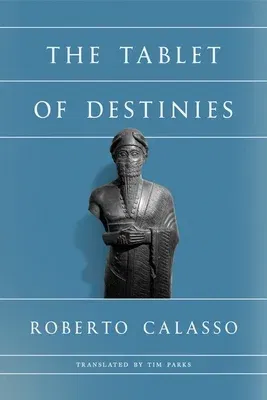Roberto Calasso
(Author)The Tablet of DestiniesHardcover, 26 July 2022

Qty
1
Turbo
Ships in 2 - 3 days
Only 4 left
Free Delivery
Cash on Delivery
15 Days
Free Returns
Secure Checkout

Print Length
128 pages
Language
English
Publisher
Farrar, Straus and Giroux
Date Published
26 Jul 2022
ISBN-10
0374605017
ISBN-13
9780374605018
Description
Product Details
Author:
Book Format:
Hardcover
Country of Origin:
US
Date Published:
26 July 2022
Dimensions:
23.11 x
15.49 x
1.27 cm
Genre:
Italy
ISBN-10:
0374605017
ISBN-13:
9780374605018
Language:
English
Location:
New York
Pages:
128
Publisher:
Weight:
317.51 gm